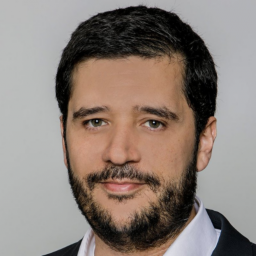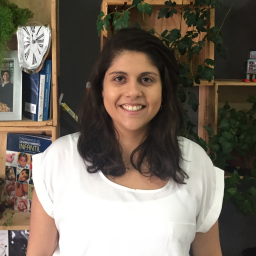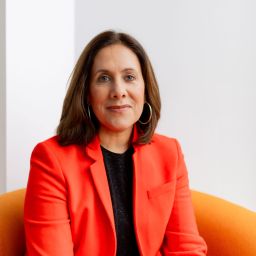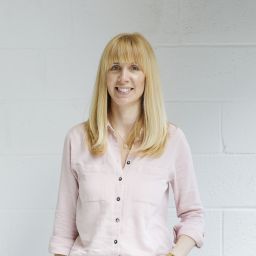Meaningful Business (MB): Can you tell us a bit about the issues you are trying to solve and why you selected them
Yonatan Golan (YG): The current alternative protein market has many problems when it comes to cost, flavour, functionality, quality and sustainability. Microalgae are the ultimate source of protein in terms of sustainability, but unfortunately the existing options for microalgae as an alternative protein are costly and encounter taste barriers. Brevel’s solution for microalgae-based protein has managed to solve these challenges.
We are actively working to solve the biggest nutrition challenges that exist today, by providing truly sustainable microalgae protein which is tasty and affordable in a world first. Brevel uses non-GMO microalgae grown by leveraging a breakthrough technology which enables high quality, tasty and sustainable protein production at cost levels comparable to pea and soy, the leading sources of plant-based protein today.

Yonatan Golan, Co-Founder & CEO, Brevel
MB: How is your work tackling those problems, and what impact are you having?
YG: Brevel’s technology is the first globally to combine sugar-based fermentation of microalgae with a high concentration of light at an industrial scale. The result is a protein that will be price competitive with pea and soy and is tasty. Brevel’s protein solves immediate challenges in plant-based dairy and egg products, namely lacking a valuable nutritional profile due to the need for a very mildly flavoured protein source.
Microalgae are by far the most sustainable source of protein on this planet. Compared to soy which is the leading plant-based protein today, microalgae are 99.95% more efficient in terms of land, 67% more efficient in GHG emissions and 55% more efficient in water usage. Putting things into perspective, in order to produce one ton of protein from beef, you need the equivalent of 230 football fields, versus five football fields for a ton of soy protein, and in comparison, only a fraction of that at less than one basketball court for a ton of microalgae protein.
MB: What support do you need in order to scale your business and increase your positive impact?
YG: In order to make a significant wide scale impact, our solution has to be applied on a global scale. With our upcoming commercial demo factory which will be up and running by the end of this year, we will be able to produce, at maximum capacity, 100-150 tons of product per year. In comparison, the food industry is expected to require 300 million tons of protein by the end of the decade, which is 2 million times larger than our demo factory. This will require massive infrastructure, supply chains, investments and more. To make a parallel – we have developed the “Tesla” of the food industry, but we now need to electrify all of the gas stations in the world to really move the impact needle.
For this we need to bring in large partners, experienced experts and as much support as possible on all fronts.
MB: How do you work with partners and the wider ecosystem to achieve your mission?
YG: Brevel is focused on food application at this point, including plant-based dairy, egg, fish and seafood. Our protein comes as a dry powder which can be simply added directly to formulations. Our partners today add it in different forms – either directly as powder, or apply some processes such as homogenization, secondary fermentation, etc. to increase its solubility, extract additional flavours and more. This depends on their specific needs and preferences.
In terms of functionality, for our first segment of partners, we actually try to be as inert as possible – increasing the nutritional profile of their products without changing the taste, colour, texture or cost for the end consumer. One of our piloting partners described it as a “ghost protein” – it increases protein content without you noticing it is there. In the second stage, we will be looking to provide functionalities such as gelation, texturing, emulsification and more, which are more suitable for fish and seafood alternatives.
We joined forces with V-Garden, a leading developer and manufacturer of delicious plant-based, vegan foods, and are collaborating in creating plant-based cheeses as well as additional food products which will contain our protein. In addition, Kibbutz Yotvata and Brevel signed a Memorandum Of Understanding agreeing to build a commercial-scale manufacturing facility for the cultivation and production of microalgae-based protein and related products for the food and beverage industry.
MB: What is your ambition for the future of your business?
YG: Brevel’s microalgae as a plant-based protein can help feed the world when we reach 9.7 billion people by 2050. Due to the high nutritional value and sustainable production in the mid and long terms, our aim is to become the #1 choice for plant-based protein worldwide.
MB: How do you measure success?
YG: There are many stages of success, and while I have my north star of becoming a major source of ingredients for the food industry and significantly reducing the environmental footprint of food worldwide, I also look at much smaller and closer success milestones.
The most immediate one is completing our demo factory, expanding the team and providing jobs for people producing tangible products that the world really needs. Next would be providing true value to our first customers who will use our protein and other ingredients in their products, and have end consumers actually eat what we produce for a healthier and more sustainable life. After that, having in place a first large scale commercial factory to produce thousands of tons annually would be a significant milestone in our journey.
________
Quickfire questions
MB: Tell us a mistake you’ve learned from
YG: I was sceptical of mentorship and imagined it to be technical advice on the lines of “do this, do that”. Today I understand the importance and power of having someone beside you that understands what you are going through, has been there themselves and really believes in you. I have been meeting virtually with a mentor almost on a weekly basis for more than four years now and both I and Brevel owe a lot to this relationship.
MB: How do you spend your time away from work?
YG: I have been vegan for the last 12 years, both from a moral perspective – and also from a sustainability perspective. I am also a physicist who views the feeding challenge very rationally and believes, like many experts and companies, that microalgae can become the ultimate solution. My children are vegan too and I do not like the health choices that they have today. When they drink soy milk, it has the health benefits of a cardboard box. My kids, and other people as well, deserve better.
MB: What’s the best piece of advice you’ve ever received?
YG: Find inspiring people to join you on this journey. You don’t know what you don’t know and you will need great minds and a diverse team with you. This includes direct team members as well as formal and informal advisors and supporters.
MB: What is something you wish you were better at?
YG: As a first time entrepreneur and leader in such a tense environment I often have the feeling that I have no idea what I am doing, and this is where “imposter syndrome” creeps in the cracks.
MB: What is the one book everyone should read?
YG: Start With Why by Simon Sinek: I admire and follow his work. He speaks of a workplace and business vision I believe in and strive to operate by. I am mostly curious to find my inner “why” with him – I know what I am doing, and feel it is right, but still lack the clear connection to my inner drive to do so.
________
Discover the other leaders recognised on the 2022 MB100, for their work combining profit and purpose to help achieve the United Nations Global Goals, here.




















